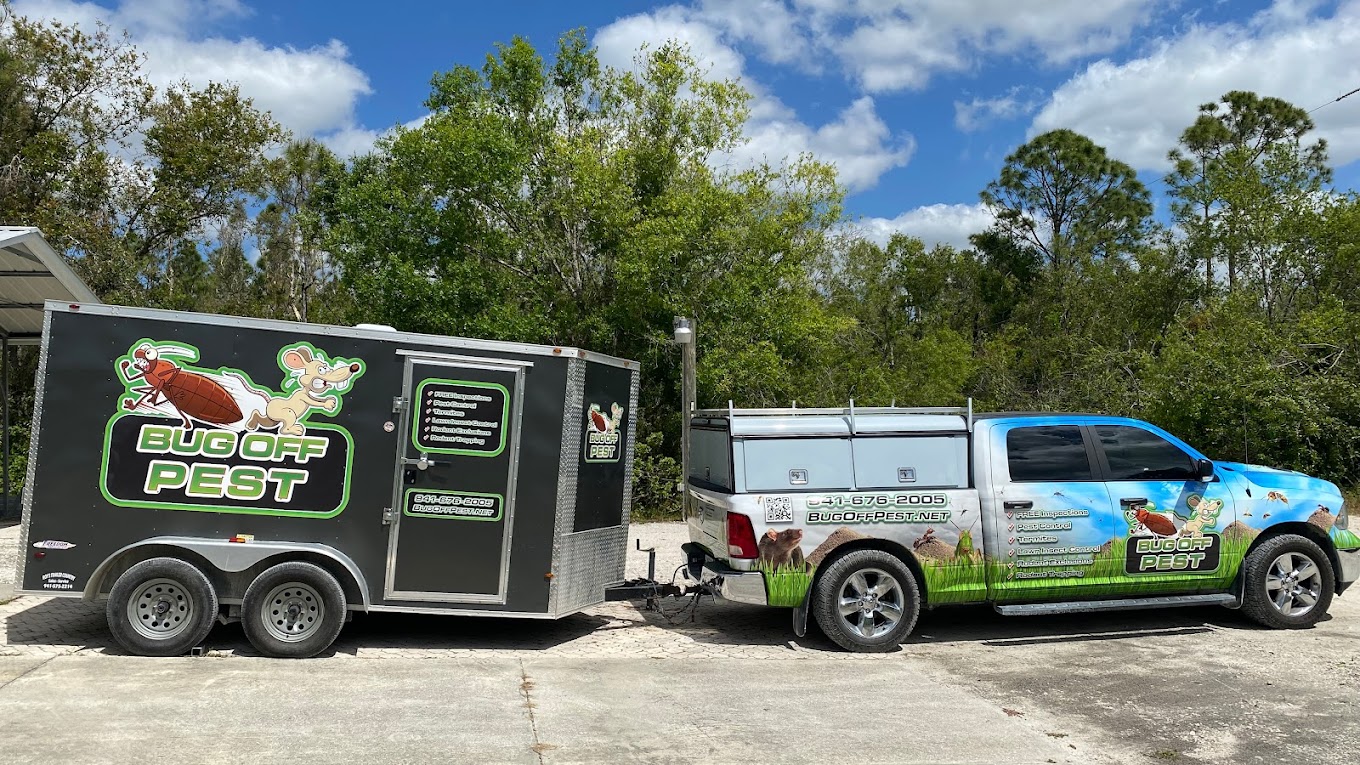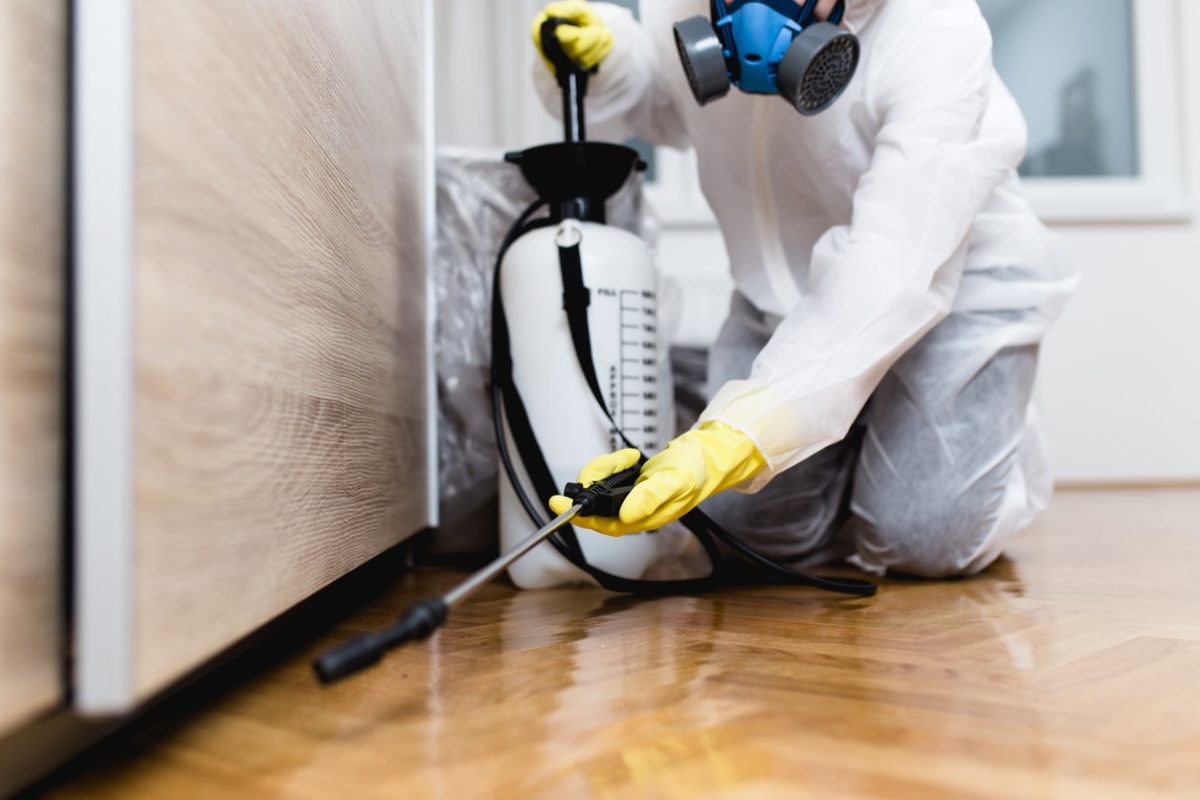Exploring Ingenious Methods and Products for Reliable Parasite Control
The landscape of insect control is developing, marked by the introduction of cutting-edge strategies and products developed to improve effectiveness and sustainability. From smart catches furnished with sophisticated tracking systems to biological methods that utilize all-natural killers, these advancements present a paradigm change in just how we come close to pest management.
Smart Traps and Checking Systems
How can modern technology boost bug monitoring? One significant advancement is the growth of smart catches and keeping track of systems, which give real-time data and analytics for efficient bug control. These systems make use of sensing units and wireless innovation to detect pest activity, notifying home supervisors and insect control specialists to problems before they escalate.
Smart catches are geared up with attributes such as lure stations that attract parasites and record them effectively. These traps can be checked from another location, permitting prompt interventions and lessening the need for considerable chemical applications. Furthermore, the combination of maker discovering formulas allows these systems to differentiate between target bugs and non-target varieties, improving the accuracy of bug control measures.
In addition, the data gathered from smart catches can be evaluated to recognize patterns in parasite actions and ecological aspects adding to problems (Pest Control in Port Charlotte). This details is indispensable for developing targeted insect administration approaches customized to details atmospheres. By accepting wise catches and checking systems, parasite control professionals can boost their operational effectiveness and lower the eco-friendly impact of parasite management, inevitably causing much safer and a lot more lasting practices in the industry
Biological Insect Control Methods
Making use of all-natural predators and bloodsuckers, organic bug control approaches supply an environmentally pleasant option to chemical therapies. This method involves the intro or improvement of certain microorganisms that can naturally control parasite populaces, therefore decreasing dependence on artificial pesticides. Typical instances include using ladybugs to regulate aphid problems and parasitical wasps to target caterpillars.

Organic control can be classified right into 3 primary techniques: classic, augmentative, and conservation. Classic biological control entails importing natural adversaries from the parasite's native environment, while augmentative control entails boosting the populace of existing natural enemies with launches. Preservation techniques concentrate on producing conditions that support these beneficial microorganisms in the community.
It typically needs a comprehensive assessment of pest characteristics and the life cycles of both the insects and their all-natural opponents. As recognition of environmental issues expands, organic bug control techniques are progressively identified for their sustainable function in incorporated pest administration programs.
Eco-Friendly Chemical Alternatives
Environment-friendly chemical choices provide a sensible solution for pest monitoring that minimizes ecological impact while efficiently managing insect populations. These choices are derived from natural resources and are thoroughly created to target certain insects without damaging advantageous microorganisms, making them a crucial element of lasting pest control techniques.
Amongst the most efficient environmentally friendly alternatives are plant-based insecticides, such as neem oil and pyrethrin, which are originated from the seeds and flowers of different plants. These compounds disrupt the life process of parasites, minimizing their populaces without the toxic results connected with traditional chemicals - Pest Control in Port Charlotte. Furthermore, vital oils like pepper mint and clove oil exhibit repellent buildings, additionally boosting their energy in insect management

Moreover, eco-friendly chemical alternatives typically damage down faster in the setting, minimizing the threat of dirt and water contamination. This particular aligns with the raising consumer need for sustainable methods in agriculture and urban pest control. As research study proceeds to development, the growth of cutting-edge eco-friendly formulations will certainly better enhance efficacy and broaden application locations, enabling pest management professionals to embrace greener, much more accountable approaches in their methods while protecting human health and wellness and the environment.
Scent Disturbance Methods
One more ingenious approach in lasting parasite administration is the use of pheromone interruption strategies. These methods make use of the natural chemical signals, or scents, that pests use for interaction, specifically in mating actions. By interrupting these signals, bug populations can be properly taken care of without considering dangerous chemicals.
Scent catches are generally used in this method. These catches make use of synthetic versions of insect pheromones to lure male insects, thereby reducing their ability to locate ladies and duplicate. In time, this can cause a substantial decrease in parasite populaces. Additionally, the launch of repellent scents can produce confusion amongst bugs, even more hindering their mating processes useful source - Pest Control in Port Charlotte.

Integrated Parasite Management Approaches
Reliable insect control frequently calls for an extensive method, and Integrated Insect Administration (IPM) methods offer a framework for accomplishing this goal. IPM integrates various monitoring methods to decrease parasite populaces while decreasing reliance on chemical pesticides. This complex method begins with extensive tracking and identification find out here of bugs, allowing for targeted treatments based upon specific parasite stress.
Social practices, such as plant turning and sanitation, play an essential duty in stopping bug establishment. Organic controls, consisting of all-natural predators and parasitoids, are used to keep bug populations at manageable degrees. When necessary, careful chemical therapies are applied, highlighting reduced poisoning to non-target species and the setting.
By utilizing this holistic strategy, IPM not only enhances insect control efficiency however likewise adds to lasting environmental balance. Inevitably, Integrated Bug Monitoring represents a forward-thinking remedy that aligns farming efficiency with environmental stewardship, making it necessary in modern pest control techniques.

Final Thought
In final thought, the integration of cutting-edge techniques and products for index reliable pest control represents a significant development in sustainable bug management. Smart catches and keeping an eye on systems, biological bug control approaches, environmentally friendly chemical alternatives, and pheromone interruption methods collectively boost the performance of pest monitoring techniques.